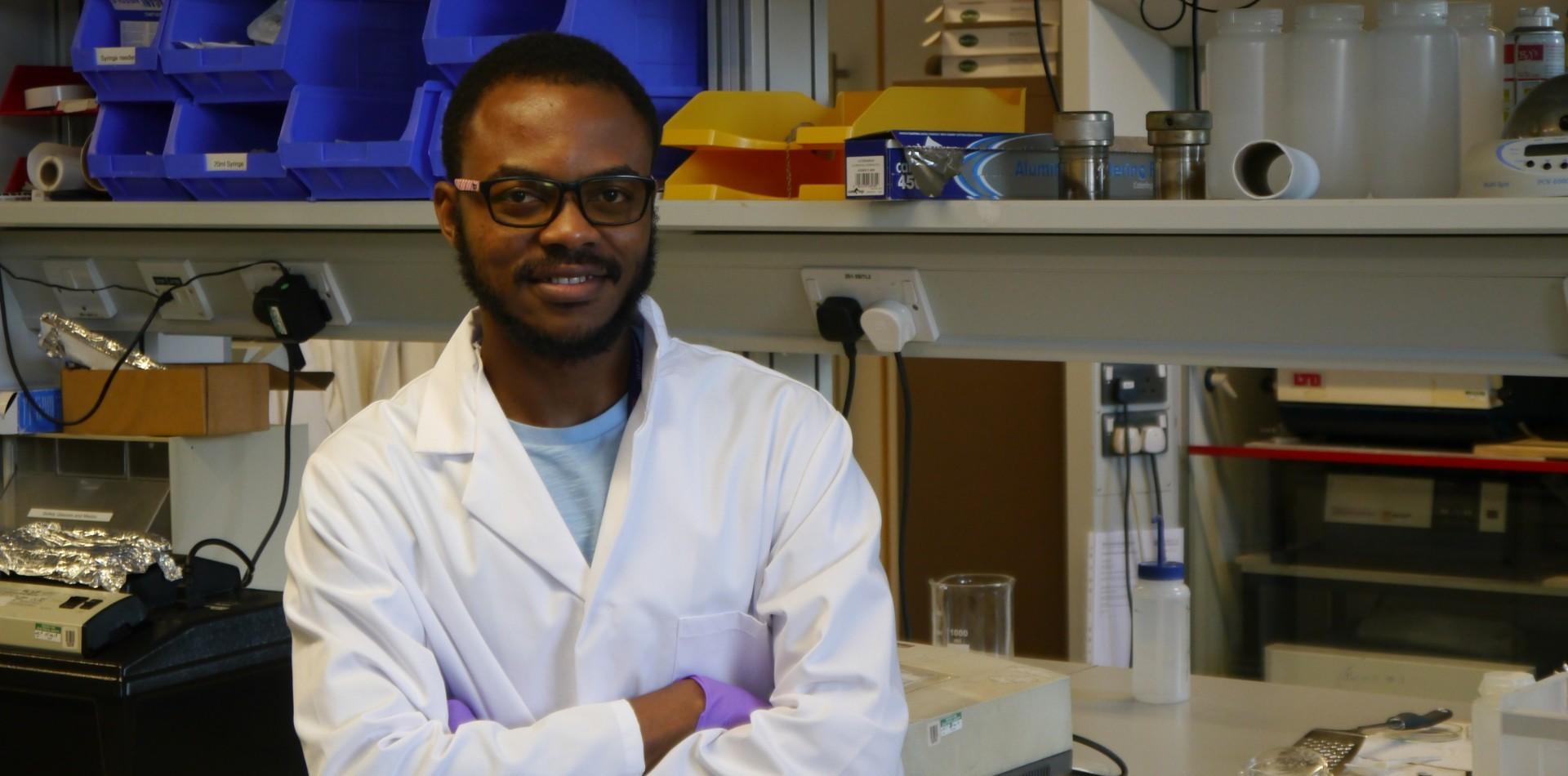
Submitted by K.L. Hlaba on Mon, 21/09/2020 - 13:14
I am from Ghana, and in 2019 I was awarded the prestigious and highly competitive Commonwealth Split-site PhD Scholarship to study at the University of Cambridge. My doctoral research focuses on the use of renewable and sustainable techniques for environmental remediation, specifically for water purification (and also for energy generation). I am currently in the second year of my PhD, and the laboratory aspect of my work takes place in the Material Chemistry lab situated within the Department of Materials Science and Metallurgy.
I hold both a Bachelor’s and Master’s degree in Chemistry from the University of Ghana, and I am currently enrolled on a PhD in Chemistry at the same institution. Right after my Bachelor’s degree in 2012, I was posted by the government of Ghana to the Food and Drugs Authority (FDA), Ghana, where I served as a Regulatory Officer/Chemist, conducting quality control laboratory analysis on pharmaceutical, cosmetic, and food products. During my Master’s degree (from 2015 to 2018), I worked as a Graduate Research Assistant at the Department of Chemistry at the University of Ghana, where I assisted and supervised undergraduate laboratory work. I have an inquisitive mind, and I am enthusiastic about understanding and exploiting natural phenomena to improve human lives and the environment, which is why my current research focuses on manipulating properties of materials and tailoring them for specific applications. I chose to do my research at the University of Cambridge because of the excellent research support it provides, and the expertise it has in the area of materials science.
According to the World Health Organization (WHO), about 10% of the total burden of disease worldwide could be prevented by improvements in drinking water, sanitation, hygiene and water resource management. Diseases such as diarrhoea, which results in 1.5 million deaths each year, and childhood underweight, which causes 70,000 deaths yearly, as well as the transmission of intestinal nematode infections, are preventable. This makes the global importance of safe drinking water key for development, poverty reduction, and good health. In this context, my research looks into the use of simple techniques to produce low-cost, scalable and environmentally friendly material for wastewater and water purification or treatment. I therefore subscribe to the United Nation’s SDG 6 to ‘Ensure availability and sustainable management of water and sanitation for all.'
Water is key to food security, because crops and livestock need water to grow. Agricultural production requires enormous quantities of water for irrigation, and the water needs to be of good quality for various production processes. Besides, while the global population is increasing at an unprecedented rate, water scarcity is also increasing, and it is expected that soon the use of wastewater in agriculture will increase further, especially in areas where fresh water is scarce. Thus, research that focuses on the remediation of wastewater using renewable and sustainable technologies is crucial to food security.
During the course of my studies in Cambridge, I also worked as a Volunteer Research Officer for the Cambridge Development Initiative, where I conducted research on a project titled 'Treatment of Drinking Water in Vingunguti – Can Solar Technologies Help?'. Collaborating with various researchers across Cambridge and in Tanzania, I saw the transition from a lab-based idea/study to a real-life application. Working with Professor Ramachandran Vasant Kumar (Supervisor) and Dr Michael Coto allowed me to learn new skills, develop new ideas, and appreciate the various ways science could be applied to solve environmental issues.
In terms of the laboratory aspect of my research, where I prepare, characterize, and test new materials, COVID-19 has had a great impact. This is because I had to stay home for about four months due to the general lockdown. That notwithstanding, the lockdown was a great opportunity to conduct an in-depth literature review of my subject area. The blessing of COVID-19 is the numerous ideas I gathered during the lockdown, which I am now using for my lab-based research.
On a personal level, the lockdown was a great moment for introspection – revisiting the past, comparing it to the present, and charting a course for the future. I was able to critically analyse my progress based on the goals and objectives I had set for myself before the lockdown, and also reaffirmed to myself my life’s purpose. It wasn’t the best of moments – but I successfully persevered, as usual.
For now, my focus is to continue my lab research. I also have some papers that I am preparing to publish. After I graduate, I would like to become a world-class researcher and a Materials Chemist.
For prospective PhD students, my advice is to first choose a subject area that inspires you. A genuine interest in the area of research helps you to learn quickly, and motivates you to carry on through the times when experiments do not work out as planned. Secondly, choose a laboratory that has the resources, facilities and expertise required for your project.
I would encourage any current PhD student to write down your life and/or research goals and objectives clearly – don’t keep them in your head. Read them out loud to yourself every morning before you step out and at night before sleeping. Prioritise everything you do – there’s so much to be done that you might sometimes get confused. Prioritising based on your life and/or research goals makes you decisive, and can help to reduce any anxious rumblings in your mind.
Please find a research presentation by Bright here.
Photo supplied by Bright Jaato, pictured at the Material Chemistry laboratory in Cambridge. Please find Bright's profile here.

